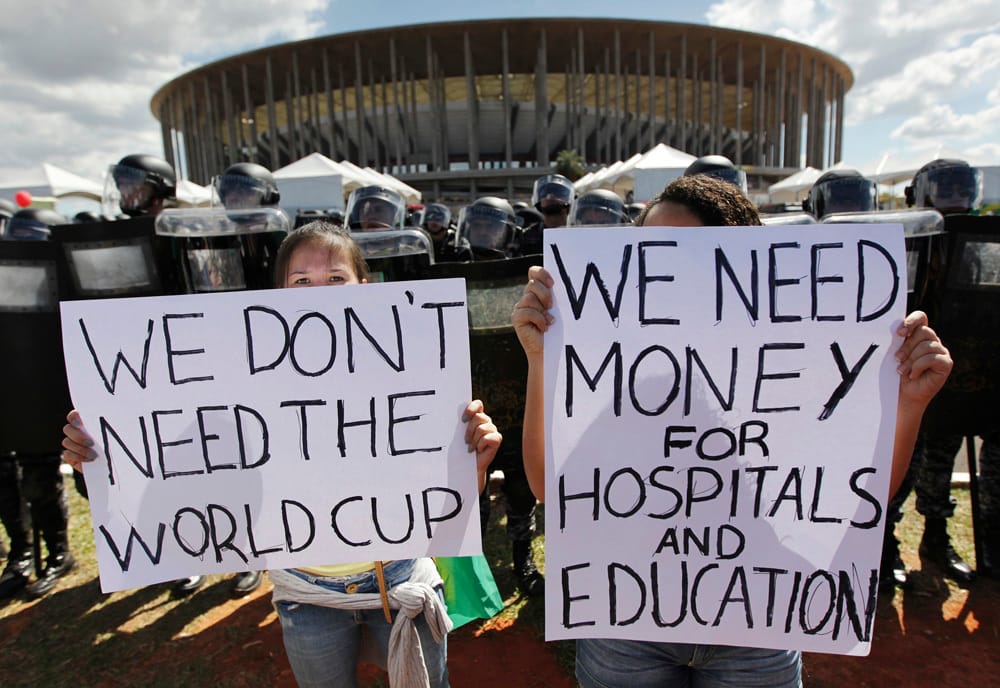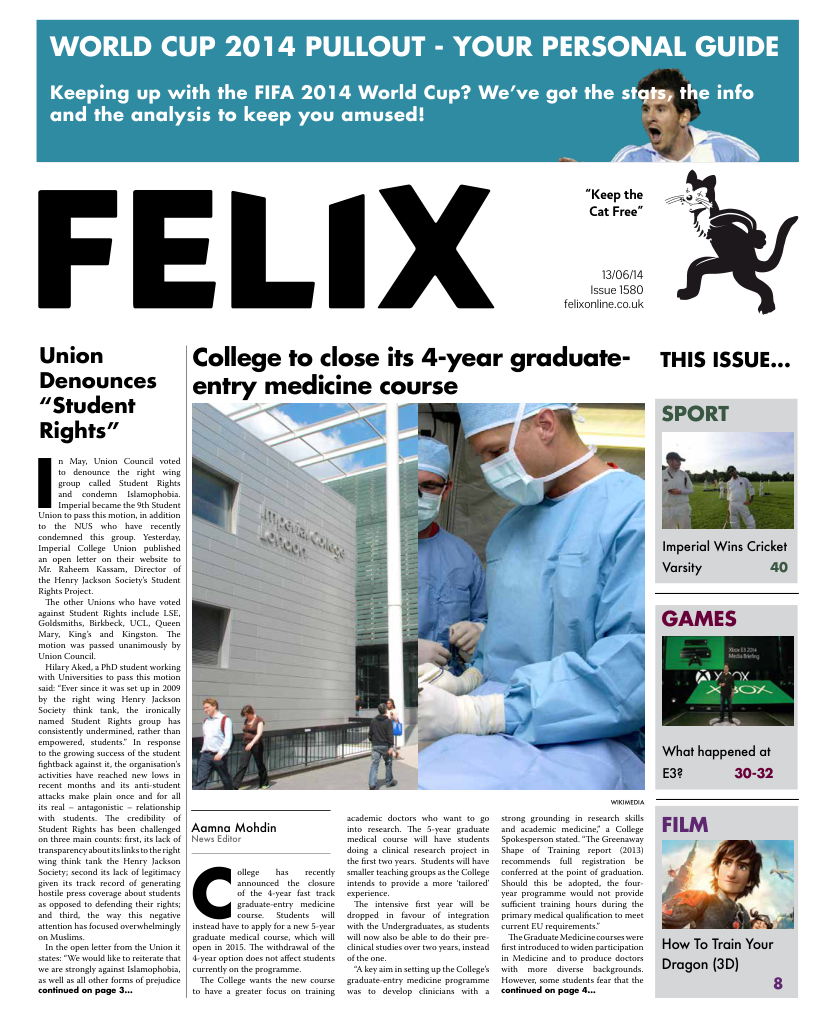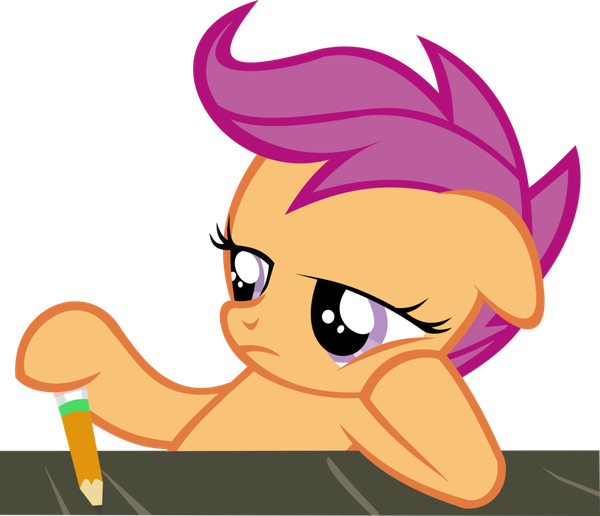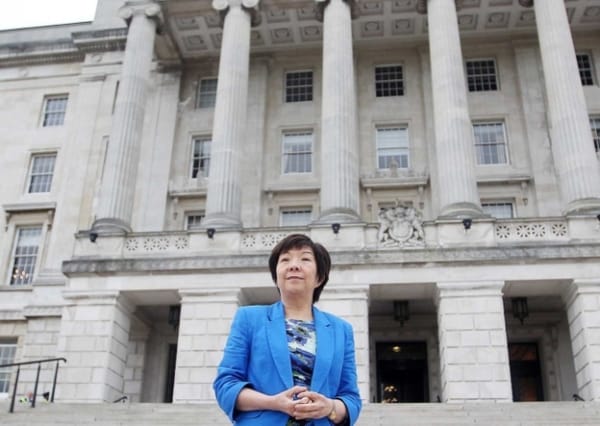The Money Game behind FIFA
From passionate Torcedores to angry protesters, where is FIFA taking us?

The World Cup is starting and football fans will be delighted once more by one of the most important sports competitions in the globe. Fans all around the world are ready to support their favourite team and enjoy an event that takes place only once every four years. However, for many of us who love football, this year´s environment is not as festive as we would like. Protests, clashes between police and citizens, allegations of corruption, and Brazilian social problems, have overshadowed what should be a carnival in a country that has always been recognised as one of the most passionate about the sport. Even worse, FIFA, which is the international body that is expected to surveil the organisation, is largely responsible for this.
I have been asked several times what I think about this issue, bearing in mind that I am passionate about football, and at the same time understand the social protests in Brazil, coming from a country with similar problems. At first I did not know what to answer; I could not hide my joy for being able to see my national team after 16 years of absence, but at the same time I felt that I was incoherent with my socio-political points of view.
I decided to do some research trying to understand the point of view of Brazilian protesters, those that cannot afford one ticket to see the Canarinha, those that will not see any pound spent by tourists, those who are still wondering how is it possible to invest around £10bn in infrastructure for the World Cup, when the country has many other priorities.
After checking some newspapers and watching some videos, I concluded that these people are not against football. They loved it before they were chosen to be the World Cup hosts, they love it now, and they will love it after the 14th of July. Their problem is with those that are using football to increase the numbers in their bank statements, those that manipulate the business for their own benefit. Of course, I refer to FIFA executives.
It surprises me to read FIFA executives’ answers when someone asks them about social problems in Brazil. It seems pretty easy for them to say that those problems are not FIFA’s responsibility, that a World Cup brings development to a country, and that they do not feel ashamed about the government spending that much money on infrastructure, as it was part of Brazil’s proposal. I would agree that they are not directly responsible, but the way they manage football is fostering these phenomena, therefore they should feel guilty.
Of course it was the Brazilian government who developed the proposal, but if they hadn’t presented it like this, probably they would not have been selected, as this is the way FIFA works. FIFA should not defend their position based on the selection process. It is just a matter of checking recent allegations of corruption in the selection of Qatar as 2022 world cup host, to see how unreliable this methodology can be. In addition, it is very annoying to know that all investment comes from Brazilian government, but all the profits from tickets, television rights and all other sponsors go to FIFA, with no one knowing the way it is spent. They are very proud of hundreds of social projects all around the world, but you do not have to be an expert in finance to suspect that they earn more than what they invest in football. At least, this is what many people think, based on the lack of transparency of their statements.
It is important to mention that, to some extent, the Brazilian government is also responsible for this crisis, but FIFA world cup model exacerbates it. Social problems existed before Brazil was selected as host nation, but the way profits and expenditure are shared upsets anyone who sees the government building huge stadiums while they can barely eat. This idea that the World Cup brings development is more a theory than a proven economic fact, and it would drive you mad to see huge airports, big motorways and impressive hotels, in cities lacking decent hospitals and schools. Corruption in FIFA destroys the essence of football, as the business is becoming more important than the sport, and this will continue until things change in the way this institution is managed.
I am pleased to see Colombia back in a world cup since that horrendous night against England in 1998, and I will enjoy the tournament. However, I think that something has to be done to control FIFA’s actions. They have proven to achieve impossible tasks, decided to hold a World Cup in a country without any relevant football tradition and with harsh weather, and turn the countrymen of Pelé, Romario, Ronaldinho and Neymar against the most important tournament of their beloved sport. Now I am afraid to imagine where FIFA will lead us if nothing is done.







